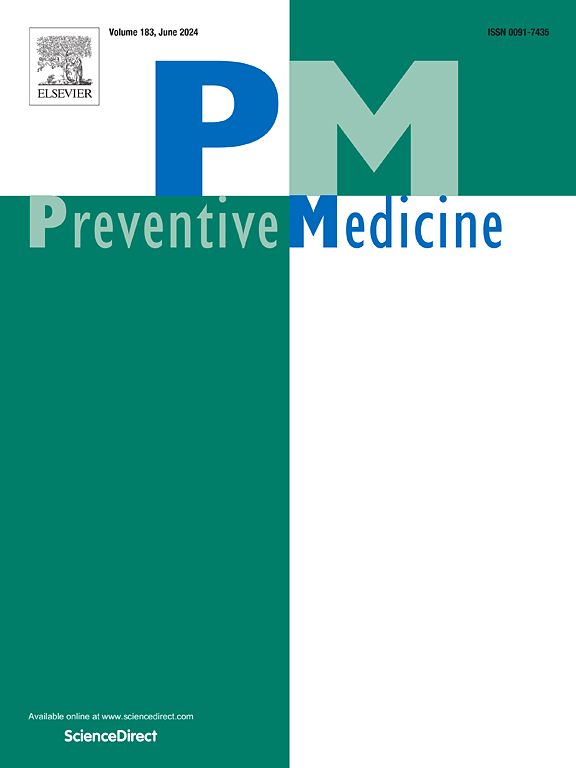Examining childhood and adulthood stressors as risk factors for gestational diabetes mellitus in working pregnant individuals: A prospective cohort study
IF 4.3
2区 医学
Q1 MEDICINE, GENERAL & INTERNAL
引用次数: 0
Abstract
Aims
This study aimed to examine the individual and joint associations of adverse childhood experiences (ACEs) and maternal work and non-work related stressors with the risk of gestational diabetes mellitus (GDM).
Methods
Working pregnant individuals (n = 1163) from a United States (U.S.) prospective cohort conducted in South Carolina between 2016 and 2021 were included in the study. ACEs were assessed at study enrollment before 20 gestational weeks (GW), while maternal stressors were assessed in late pregnancy and GDM diagnosis occurred between 24 and 30 GW. Multivariable logistic regressions were performed to assess associations of ACEs and maternal stressors with GDM.
Results
Childhood abuse, an ACE subdomain, was associated with an elevated but statistically insignificant risk of GDM (adjusted OR = 1.47; 95 % CI: 0.85–2.53). Only maternal work stressors were associated with an increased risk of GDM (adjusted OR = 2.11; 95 % CI: 1.17–3.79) and the association became much stronger among those with childhood abuse experiences (adjusted OR = 3.80; 95 % CI:1.68–8.60).
Conclusion
Among U.S. working pregnant individuals, having work stressors during pregnancy was associated with an elevated risk of developing GDM, particularly among those who had childhood experience of abuse.
将童年和成年期的压力因素作为工作孕妇妊娠糖尿病的风险因素进行研究:前瞻性队列研究。
目的:本研究旨在探讨不良童年经历(ACE)、孕产妇工作和非工作相关压力因素与妊娠糖尿病(GDM)风险之间的个体和联合关联:本研究纳入了 2016 年至 2021 年期间在南卡罗来纳州进行的一项美国前瞻性队列研究中的工作孕妇(n = 1163)。在 20 孕周(GW)前的研究注册时对 ACE 进行了评估,在孕晚期对母体压力因素进行了评估,GDM 诊断发生在 24 至 30 孕周之间。研究人员进行了多变量逻辑回归,以评估ACE和母体压力因素与GDM的关联:结果:作为 ACE 子域的童年虐待与 GDM 风险升高有关,但在统计学上并不显著(调整 OR = 1.47;95 % CI:0.85-2.53)。只有孕产妇的工作压力与 GDM 风险的增加有关(调整 OR = 2.11;95 % CI:1.17-3.79),而在有童年受虐经历的孕产妇中,这种关联变得更为强烈(调整 OR = 3.80;95 % CI:1.68-8.60):结论:在美国工作的孕妇中,怀孕期间的工作压力与罹患 GDM 的风险升高有关,尤其是在那些童年曾遭受虐待的孕妇中。
本文章由计算机程序翻译,如有差异,请以英文原文为准。
求助全文
约1分钟内获得全文
求助全文
来源期刊

Preventive medicine
医学-公共卫生、环境卫生与职业卫生
CiteScore
7.70
自引率
3.90%
发文量
0
审稿时长
42 days
期刊介绍:
Founded in 1972 by Ernst Wynder, Preventive Medicine is an international scholarly journal that provides prompt publication of original articles on the science and practice of disease prevention, health promotion, and public health policymaking. Preventive Medicine aims to reward innovation. It will favor insightful observational studies, thoughtful explorations of health data, unsuspected new angles for existing hypotheses, robust randomized controlled trials, and impartial systematic reviews. Preventive Medicine''s ultimate goal is to publish research that will have an impact on the work of practitioners of disease prevention and health promotion, as well as of related disciplines.
 求助内容:
求助内容: 应助结果提醒方式:
应助结果提醒方式:


